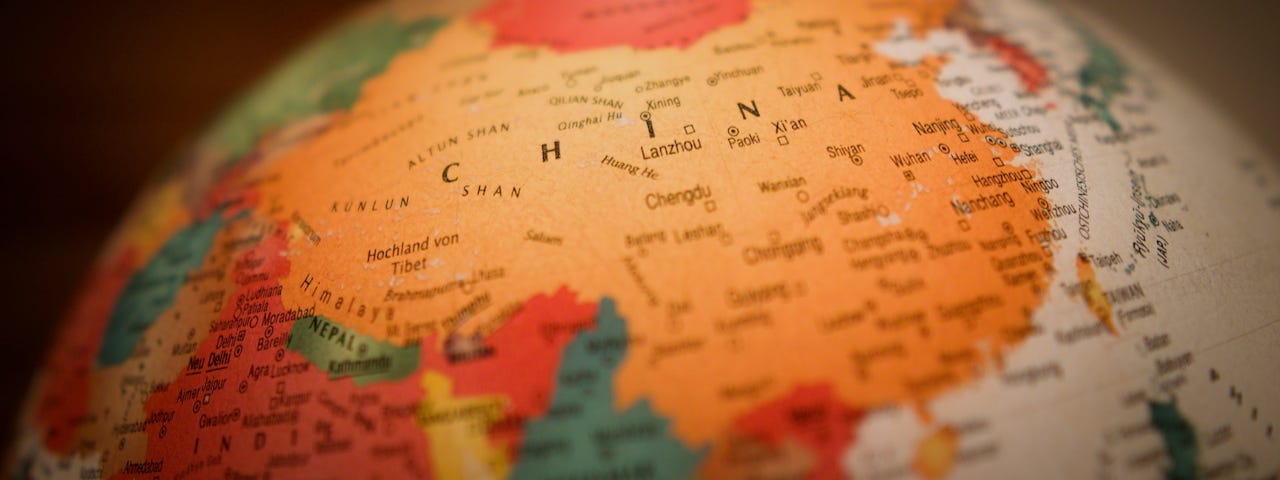WorldWise readers—
Saleemul Huq is well known to all who follow climate change debates and negotiations.
His sudden death over the weekend is a huge loss for everyone who cares about the future of humanity on this planet. The veteran scientist was a tireless campaigner for climate action, working both at the highest levels of policy and on the ground, focused on the vulnerability and rights of developing countries. It’s in large part thanks to him that adaptation became more visible at the UN’s annual negotiations.
The heartfelt tributes are pouring in from those who knew him well.
This interview, reposted by Oxfam’s Duncan Green on the blog From Poverty to Power, offers a glimpse of the insight and clarity of thought he brought to the conversation.
And this is his last piece of writing.
As Director of the International Centre for Climate Change and Development in Bangladesh, and a Senior Fellow at the International Institute for Environment and Development in London, Huq more than managed this rare thing of really moving the needle through his work.
Just as noteworthy is the steadfast and soft-spoken manner in which he did it. Saleemul Huq won’t be forgotten.
Anita
INSIGHT | views & analysis
Some events shock the world into new shape.
Others do their reshaping slow and steady.
Enter China's Belt and Road Initiative (BRI), an investment and policy initiative that marked its 10th anniversary a couple of weeks ago.
China threw a party to celebrate—a summit attended by dozens of officials, including Russia’s Vladimir Putin and leaders from several African countries. It was a moment for Xi Jinping to lay out a vision for the future of the initiative.
Why does it matter? Because in its sales pitch of BRI’s new phase, China continues to entice world leaders with an alternative route to development partnerships compared to what’s on offer by the United States and generally the Global North.
We’ll look at some of the details—but first, a recap.
10 years of Belt & Road, in a nutshell.
Through the initiative, China has been building global infrastructure and energy networks that connect Asia with Africa and Europe through land and sea. That means power plants, roads, airports, telecommunications networks—mostly in developing countries, funded primarily through loans. The total investment is estimated at over $1 trillion.
A recent example is Indonesia's newly launched Jakarta-Bandung High-Speed Railway, the first high-speed railway in Southeast Asia, which is a joint venture of Chinese and Indonesian state-owned enterprises.
BRI began back in 2013 by sending products to European markets on trains along the 2,000-year-old Silk Road route across Central Asia. The “Silk Road Economic Belt” soon expanded into a global initiative, in many cases partnering with countries that had flimsy ties with the United States.
And that last bit is important: by most accounts, this isn’t just an economic project about building things and connecting continents—it’s China’s way of using its resources to exert geopolitical influence and counter that of the Western world.
Building a new world order one BRI project at time.
And it’s worked.
The country’s role in international development now rivals that of the United States and the World Bank. By some estimates, as of June this year China has signed over 200 BRI cooperation agreements with 152 countries and 32 international organisations. That means thousands of projects and hundreds of thousands of jobs. It also means expanded access to resources such as oil, gas and minerals.
China has positioned itself as a leader in the Global South through greater connectivity, which includes university scholarships and cultural exchange programmes. In a 2022 survey, young people in Africa ranked China above the United States as the most influential foreign power. Attitudes towards the country are becoming more and more favourable across middle-income countries.
And that diplomatic victory is now becoming visible in official fora—through the building of coalitions that oppose critical UN measures, for example, or the recent expansion of the BRICS bloc.
But that success comes with its problems.
Over the years the initiative has attracted controversy for projects that proved expensive, poor in quality, exploitative of workers, and damaging to the environment.
Now, much of the criticism centres on the crippling levels of debt that some developing countries are left with after signing up to BRI. One of the better known examples is that of Sri Lanka, which declared bankruptcy in 2022. More than half of its debt is owed to China, linked to money borrowed to build the Hambantota deep-water port.
Other countries are also struggling to pay their debts—but China is facing its own economic slowdown at the same time, and has refused to cancel those debts.
It’s also scaling back the amount of money dispensed for projects. By some estimates, the country’s development finance peaked in 2016 and dropped significantly by 2021.
This turn of events has also led to a rethink of the BRI initiative.
It’s about to get ‘smaller and greener’.
Representatives of low- and middle-income countries left the 10-year anniversary summit with some $100 billion in deals across multiple development projects. But China’s lending is now more contained, made up of smaller grants and investments.
At the same time, the focus is turning to digital ventures, such as the flagship “Digital Silk Road” for e-commerce, and projects that are more environmentally sustainable—think rattan-weaving and biogas technology in poorer countries.
Improving environmental sustainability appears to be central to China’s next phase of development lending: finance is expected to be contingent on projects passing environmental impact assessments.
There’s a range of other promises, from expanded access to the country’s huge market to greater cooperation in a number of areas including technological innovation.
A sidenote—there was one important figure missing from the 10-year anniversary party: Indian Prime Minister Narendra Modi, whose rivalry with China’s Xi is a wildcard in this geopolitical game.
Between the lines, what China is also pitching is development without domination.
The message is that its brand of development is fair, inclusive, and supportive of other countries’ success, unlike the trade sanctions and demands for political reform involved in funding from institutions in the Global North.
To underscore this point NPR quotes Hong Zhang, a researcher at the Harvard Kennedy School who studies China's international development activities:
“Beijing has taken advantage of many critiques of the Western countries' approach to foreign aid, which contains conditionalities related to good governance and human rights, and seeks to portray itself as a pragmatic partner."
Countries in the Global South are getting on board. So is the UN—in the sense that it sees a “historic opportunity” to turn this new phase of the BRI into a push to place environmental sustainability at the centre of infrastructure projects around the world.
It’s no surprise that the Western world is less enthusiastic, at best. The US, EU and G7 have proposed a number of initiatives to counter the BRI. On its side, China has already proposed additional “global initiatives” to advance development, which some see as potential successors to BRI.
The race goes on.
[Sources: BBC + NPR + DW + ONE + Euronews + NYT + UN News + Atlantic]
BRIEFING | around the world
News highlights
Chile is looking to cooperate with other countries that produce lithium in order to prevent exploitation by the Global North. It’s currently Latin America’s top producer of the mineral—which is in high demand for battery production—though Argentina is waiting in the wings. Indonesia, also a major lithium producer, is pondering a similar move of setting up a mechanism for cooperation on battery minerals. And Nigeria is tightening its rules around exploitation of its mineral resources by international companies. [Tortoise + DW + CNBC]
Pakistan is gearing up to deport undocumented Afghan migrants if they don't leave voluntarily by November 1st. Some 1.7 million Afghans are estimated to be living in the country. Despite some scepticism over the government’s ability to implement the plan, and criticism by rights groups, it’s already setting up deportation centres. Anyone found staying illegally will be arrested and sent to one of the centres. Many migrants are now making a swift exit on crowded buses and trucks. [NPR + Al Jazeera + The Diplomat + DW]
Global carbon prices are growing in popularity as a mechanism for limiting emissions. Concerned that plans to tax imports based on emissions may create an uneven playing field in international trade, the World Trade Organization is looking to create a methodology that ensures carbon prices are fair. [Reuters + Economist]
Views of note
“We haven’t truly defined what climate adaptation success looks like.”
🔗 Defining climate adaptation success is possible—and urgent - Jennifer Denno Cissé for Devex
“All that the U.K.’s proposals will achieve is delaying generic competition for pharmaceutical companies. In other trade agreements, this has led to huge cost increases for health systems, and catastrophic delays in accessing medicines. Put simply, it will come at the expense of lives in the global south.”
🔗 A UK-India trade deal could threaten generic medicines globally - Olusegun Obasanjo for Devex
“It’s a long way from Rwanda and any comparisons will seem outrageous to some. But as those pressing for news organisations to call Hamas terrorists implicitly acknowledge, language matters.”
🔗 The language being used to describe Palestinians is genocidal - Chris McGreal for The Guardian
Under the radar
“In recent months, Nepal has experienced a series of episodes that hint at organized efforts to increase the salience of religion in the country’s officially secular politics.”
🔗 Hindu nationalism is gaining traction in Nepal—with help from India - Sushav Niraula for World Politics Review
“Zubair lives in close quarters with his parents, wife, and children; his only time for solitary concentration is when his kids are asleep. As part of his daily work routine, he scours the internet for fake news and propaganda for an hour after midnight. To him, October 8 felt different: The deluge of disinformation he spotted on Indian social media left him stunned.”
🔗 India’s Hindu extremists are trolling the Israel conflict - Vaibhav Vats for The Atlantic
Against the grain
“It’s a revolution in thinking that’s gathering force in policy and charity circles alike, and it’s starting to upend conventional wisdom about the best ways to do good.”
🔗 Make people happier—not just wealthier and healthier - Sigal Samuel for Vox
MEDIA | working communications
ICYMI—Our latest MEDIA post featured some dos and dont’s on how to write an opinion article. The mini guide draws from experience editing and writing op-eds for publications such as Nature, SciDev.Net and Undark, and kicks off with the moment that got me more comfortable working with opinion.





